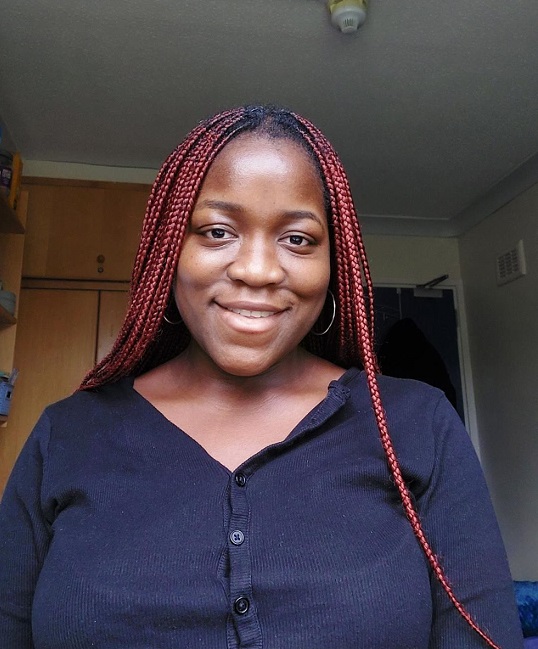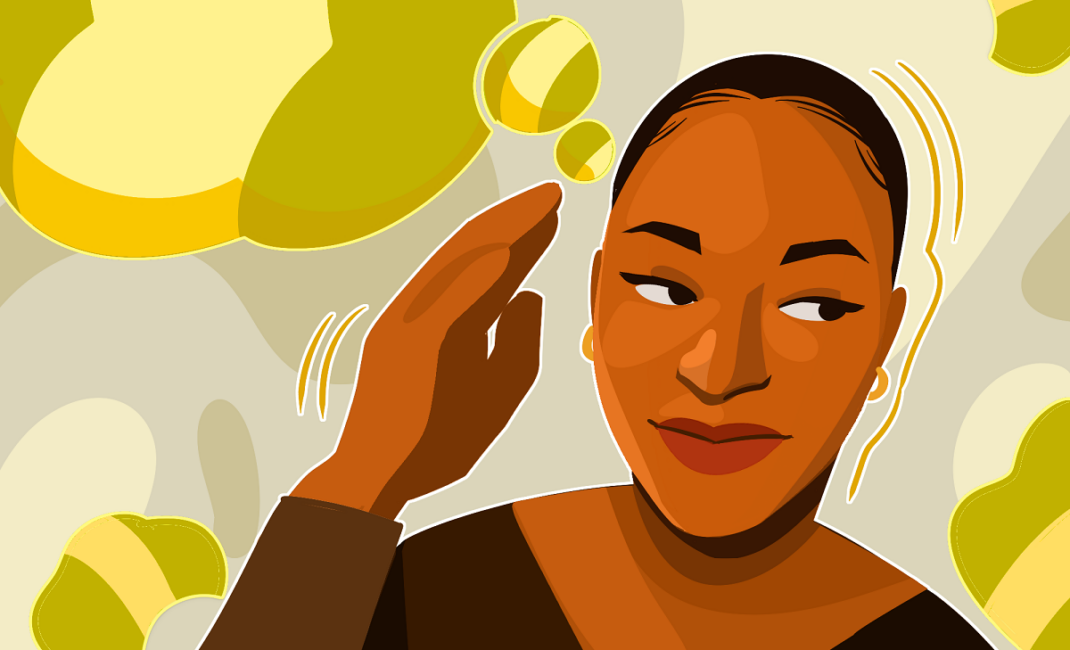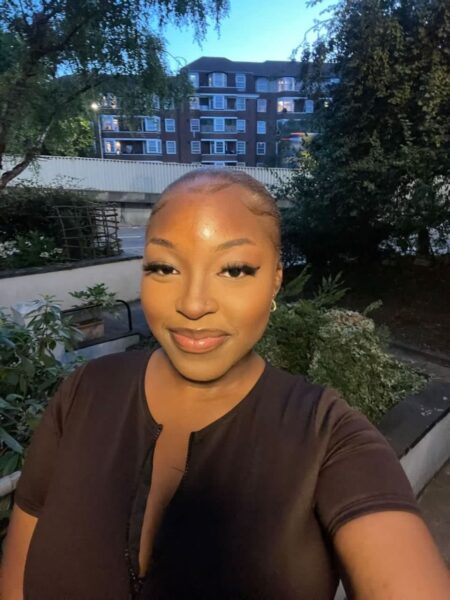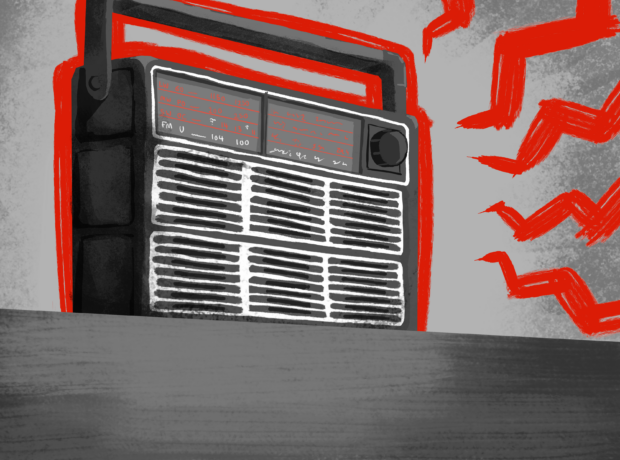In the diaspora, students with Nigerian heritage are retracing their roots with Yoruba language classes. The lessons aim to inspire confidence about a culture and heritage that might otherwise feel beyond reach. Xaymaca Awoyungbo explores how Yoruba lessons, poetry and music are breaking down barriers.
I grew up in London, the son of a Jamaican heritage mother and Nigerian heritage father. My countries of origin were undoubtedly a part of my identity but for the most part I connected with them indirectly. Much of London’s food, music and slang is derivative of both cultures so I picked up some phrases in patois and pidgin. But since my parents’ first languages are English, I was rarely exposed to Yoruba in my household.
For me, being Yoruba was a fact rather than something I embodied. I was aware that I could never be as Nigerian as someone from the country so I didn’t try to be something I wasn’t. Coming into contact with more first and second-generation British Nigerians however, I met people who were more familiar with songs, customs and a language that was foreign to me. As people questioned my knowledge it was easy to feel a sense of shame. I also began to question whether I should embrace my heritage more.
So, when I saw the University of Warwick’s language society was collaborating with the Nigerian society to teach biweekly Yoruba classes, I was excited. Learning Yoruba language would help me to access the culture more deeply.
Stepping into the classroom I see familiar faces among a sea of enthusiastic students. I sit beside my friends, asking them questions about their experience with the language. The room is so full that people are bringing in extra chairs, sitting on tables and standing on the outskirts.

Zoe Ogunode, the Vice President of the Nigerian Society and Yoruba language teacher
Zoe Ogunode, the Vice President of the Nigerian Society stands at the front of the class. As our teacher, she candidly admits that we won’t leave the lessons speaking fluent Yoruba. But she hopes the lessons will plant a seed inside us to continue learning and feel confident about our culture.
Speaking to Zoe after the lesson, I get a sense of why she started teaching Yoruba to her peers. As an international student, raised in Lagos, she noticed that many of the British Nigerian students “felt bad about not knowing their language. They felt embarrassed,” she says “I just wanted to make a safe space for people to understand you don’t have to feel ashamed to learn Yoruba.”
Shame seems to be a recurring concept when discussing Yoruba language learning. Despite growing up in Lagos, a Yoruba majority state, Zoe didn’t know the language beyond a few phrases until recently.
Her parents predominantly speak Yoruba among themselves unless they’re scolding Zoe. From a young age, she knew she would move to the UK so it was best not to learn Yoruba too fluently for fear of adopting the dreaded H factor.
The H factor refers to people, typically Yoruba, adding an “h” on or dropping an “h” off of certain English words. Egg becomes hegg and heavy becomes eavy.
While the reason for the H factor among Yoruba people is not entirely clear since the language apparently has an “H” sound, the idea of certain sounds not transferring across languages, is a common experience among non-native English speakers.
Spaniards might add an e to a word like special, making especial (the actual Spanish translation), because Spanish doesn’t have any words that start with an “s” followed by a consonant. Many French speakers also have difficulties pronouncing “h” in English because the letter is silent in French.

Art by Oreofe Morakinyo
Either way, “parents don’t want to run the risk of confusion [between languages] so they will just make sure their children only learn English,” says Zoe. “You don’t want your language to affect your accent,” she adds.
“Why?”, I ask. “Why don’t you want your language to affect your accent?” For Zoe the answer is simple. It’s a result of colonialism.
Britain came and changed people’s perception of what is the right way to be and the wrong way to be,” she says.
British people were essentially the standard of civility. Switching the focus onto me, Zoe exclaims, “If you went to Nigeria everyone would love you! Because of your accent you just sound smarter than everyone. Your chances for success are higher.”
Speaking to Zoe makes me realise how much I differ from someone born in Nigeria. Although we share the same ethnicity, our attitudes to our language and culture differ. For her, Yoruba was something she knew but didn’t previously embrace. For me, it’s something I don’t know but I’m increasingly trying to embrace.

Tomike Olukanni, a Law student at Warwick University who is taking lessons in Yoruba language
It comes from an understanding that as much as I can say I’m from London, it’s not where I’m really from. Unlike my Jamaican heritage, I’m able to trace where I’m really from as a Nigerian. Since I can access Yoruba culture through relatives, some of whom live in Nigeria, I should lean into it more.
It’s a sentiment held by some of my peers such as Tomike Olukanni, a Law student at Warwick. While at sixth form, she wrote a poem called Ile aye akamora for the Arts and Humanities Research Council’s Remembering Yoruba anthology.
“All my friends know of a secret place/Which was shut off to me, I felt out of place,” she laments in her stanzas.
Similar to Zoe’s story, Tomike’s parents mainly speak Yoruba among themselves, apart from a few warnings aimed at her. Unlike Zoe, Tomike grew up in the UK but is still immersed in Yoruba culture at home. “I know I grew up in this country, but my family is Nigerian through and through” she tells me, from the food they eat to the music they listen to.
Yet for Tomike the language is still missing. When her Nigerian-born family members and friends speak to her in Yoruba, she can understand but tends to respond in English. The few phrases she can say are not always enough to fully access the “secret place” she referred to in her poem.
As she tried to learn the language by listening to her friends at school and work, she recalls being ridiculed when she tried to put their teachings into practice at home. While her listening skills improved, her oral skills were still rudimentary. Her parents would “start laughing like ‘the way you said that is so funny and just not right.’”
Jokingly she explains that she’d reply crying “‘you’re the reason why I can’t speak this language!’”
Since Yoruba is a tonal language, the way a word is pronounced can drastically change its meaning. Tone marks are crucial because a word like “ogun” can refer to war, the god of iron and a southwest Nigerian state depending on which tone marks are used and the context of the sentence.
Her pronunciation of the dò, re and mí tone marks on the vowels in each syllable of words are probably why Tomike’s parents found her Yoruba so amusing.
The ridicule from family members is something Zoe also acknowledges.

Art by Oreofe Morakinyo
“You can’t learn Yoruba from the older generation because they will clown you for your pronunciation.”
Many Yoruba children are subsequently stuck in a bind, lacking the confidence to speak it with their family members yet needing to speak and hear the language to learn its pronunciation.
Faced with this dilemma, the next best option is to listen to the music coming out of Nigeria. Afrobeats, the umbrella term for pop music from West Africa, (not to be confused with Afrobeat, the fusion of jazz, soul and highlife, pioneered by Nigeria’s Fela Kuti in the 1960s and ‘70s) has seen a boom in popularity over the last decade. From Burna Boy headlining a concert at Madison Square Garden in 2022 to Tems winning a Grammy for her contribution to the song WAIT FOR U in 2023, the music and its artists are internationally recognised.
Many of the artists combine English, pidgin and native languages like Yoruba in their genre-blending songs. Tems mainly sings in English; Burna Boy incorporates pidgin into his lyrics; popular singer, Asake, predominantly sings in Yoruba. This blend of languages is nothing new for British listeners who listened to artists such as Naira Marley and Mic-L during the birth of the Afroswing music genre in the mid-2010s.
Read more: “If you can see it, you can be it” – The impact of Black role models and Black creative spaces
For Tomike, listening to and singing the songs is one of the ways she demonstrates her belonging in Yoruba culture. The call-and-response nature of learning a language in this way developed her intonation. She also looks up song lyrics and asks her friends for help translating them since they might be too vulgar to share with her parents.
“Afrobeats has helped people want to claim their country more,” agrees Zoe. “It makes people more likely to learn the language.” While Zoe eventually learned Yoruba out of a desire to understand the gossip in her local hairdresser, her learning was also driven by a fear of being unable to pass the language on to her children.
She feels happy she knows the language now because it’s “something I can pass on to my kids and I’ll actively try to pass on.” She says young people are “looking forward and thinking, ‘If I don’t learn it now it ends with me’.”
All artwork by Oreofe Morakinyo
Read more:



